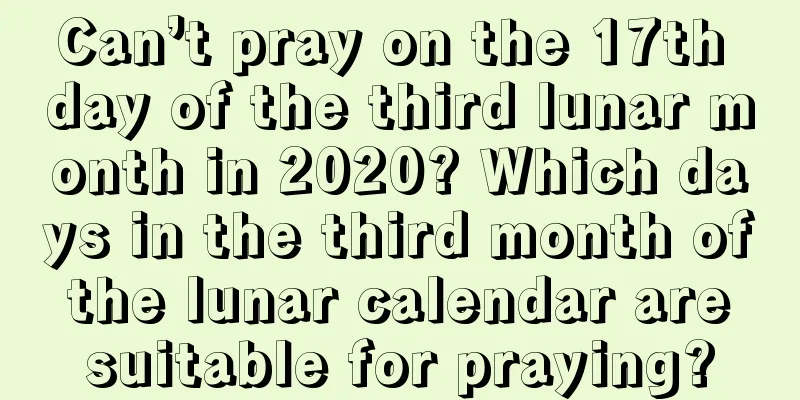What is the origin of the Little New Year Festival? Do we eat dumplings during the Little New Year?

Xiaonian does not refer to a specific day. Due to local customs, the days called "Xiaonian" are also different. The main folk activities during Xiaonian include sweeping the house, worshiping the kitchen god, etc. So what is the origin of the Xiaonian festival? Do we eat dumplings during the Little New Year?What is the origin of the Little New Year Festival?The Little New Year is usually regarded as the beginning of the busy year, which means that people begin to prepare New Year's goods, sweep the house, worship the kitchen god, etc., preparing to have a good new year in a clean manner. It expresses people's good wishes to bid farewell to the old and usher in the new, and to welcome good luck and fortune. Due to different customs in different places, the day called "Little New Year" is also different. In modern times, it has been circulated in some places in my country that the New Year's Eve for officials is on the 23rd of the twelfth lunar month, for common people it is on the 24th, and for people living on water it is on the 25th. In fact, the traditional Little New Year is on the 24th day of the twelfth lunar month. Because the emperors in the middle and late Qing Dynasty worshipped the Kitchen God one day in advance on the 23rd day of the twelfth lunar month, the people in the northern region followed suit and also celebrated the Little New Year one day in advance on the 23rd day of the twelfth lunar month.Offering sacrifices to the Kitchen God is one of the main customs of the Little New Year. The folk custom of offering sacrifices to the Kitchen God originated from the ancient custom of worshiping fire. "Shi Ming" (Explanation of Names): "Stove. It means to create, and to produce food." The duties of the Kitchen God are to control the stove fire and manage food. Later, this duty was expanded to examine the good and evil in the world and to determine whether blessings or disasters will be bestowed. According to the local customs and records written by Zhou Chu, a famous person in the Jin Dynasty, "On the night of the 24th day of the twelfth lunar month, people worship the Kitchen God. It is said that the Kitchen God will go to heaven the next day to report the affairs of the year, so they worship him the day before." Fan Chengda of the Song Dynasty wrote "Poems for Offering to the Kitchen God": "According to ancient legend, on the 24th day of the twelfth lunar month, the Kitchen God looks up to the sky to speak... I send you drunk and full to the gate of heaven. Don't say anything about whether the ladle is long or short. I beg you to share the profits when you return." Before the middle of the Qing Dynasty, the Kitchen God worship day was always on the 24th day of the twelfth lunar month, and at least until the Qianlong period, the Kitchen God worship was held on the 24th day of the twelfth lunar month. "Records of Qing Jia" Volume 12 "December: The Fourth Night of Nian, Sending Off the Kitchen God": "Common people call the twenty-fourth night of the twelfth lunar month the fourth night of Nian, and this is the night to send off the Kitchen God." "A Grand View of Qing Dynasty Unofficial History: Remaining Stories of Qing Palaces" says that during the Qianlong period, the Kitchen God was worshipped in the Kunning Palace on the twenty-fourth night of the twelfth lunar month every year. Starting from the middle and late Qing Dynasty, the imperial family held a ceremony to worship the heaven on the 23rd day of the twelfth lunar month. In order to "save money", they also worshipped the Kitchen God. Therefore, following the example of their superiors, people in the northern region also celebrated the New Year's Eve one day in advance on the 23rd day of the twelfth lunar month. In most parts of the south, the ancient tradition of celebrating the Little New Year on the 24th day of the twelfth lunar month is still maintained. Do we eat dumplings during the Little New Year?The Little New Year's Eve is also generally called the Kitchen God Festival. On this day, people have the custom of worshiping the Kitchen God in their homes. Because the folk meaning of dumplings is "farewell dumplings facing the wind", eating dumplings is to see off the Kitchen God who is reporting to the heaven. When offering the dumplings, the dumplings should be placed upright on the altar.Tips for making dumplings for the Little New Year 1. Dumpling wrappers: When kneading the dough, add one egg for every 500 grams. This will not only increase the nutrition, but also prevent the dumpling wrappers from getting mixed with the soup after being put into the pot. When kneading the dough, adding a little salt can increase the dough's strength and prevent it from breaking after being put into the pot. 2. Dumpling filling: When preparing the filling, first chop the vegetables, mix them with oil, and then add other ingredients. It can prevent the dumpling filling from leaking soup. When mixing the meat filling, add some water soaked with peppercorns and star anise. This will not only remove the fishy smell, but also make the meat filling tender. Before making dumplings, you can put the dumpling filling in the refrigerator for a while to freeze it quickly so that no soup will come out when making dumplings. When making meat-filled dumplings, you can add a little brewed tea leaves to clear your mouth and remove fishy and muttony smells. 3. Cooking dumplings: After the water boils, add some salt and wait for it to melt before putting the dumplings in to prevent them from sticking to the pan and the skin from sticking together. 4. Serve: After the dumplings are cooked, place them in warm boiled water that has been cooled in advance so that they will not stick together when you serve them on a plate. |
Recommend
What day is the twelfth day of the first lunar month and what are the customs?
Introduction: There is a nursery rhyme in our coun...
Is the 23rd day of the 10th lunar month in 2017 not suitable for offering sacrifices?
Introduction: Many people pay attention to choosin...
What is the fate of people born in Jingzhe in 2018? Things to pay attention to when giving birth to a baby in spring!
People born on March 5, 2018, are relatively indep...
What is the date of December 21st of the lunar calendar in 2017? Is it suitable for worshiping ancestors?
Introduction: China has been a traditional country...
Is October 20th of the lunar calendar in 2022 an auspicious day? What should we pay attention to in terms of fortune?
Knowing the auspiciousness and inauspiciousness of...
Does the "Nine Days of Cold" start from the winter solstice? How many days does it last?
There is a folk saying that after counting nine ni...
Analysis of the date of November 11th in the lunar calendar in 2021. Can we worship our ancestors on that day?
Speaking of choosing the time to worship ancestors...
Is it a good time to travel on May 25th of the lunar calendar in 2020? How about the lunar calendar?
Traveling is a great way to relax and release stre...
Is the 2022 Summer Solstice a good day? What are the taboos that should not be violated?
The arrival of each solar term will definitely hav...
Is the 23rd day of the twelfth lunar month in 2020 a good day? Will we post couplets on the 23rd day of the twelfth lunar month in 2020?
Introduction: Every day unfolds differently, so th...
Is the day before Bailu a suitable date for engagement in 2019? Is it auspicious to get engaged the day before Bailu?
Introduction: Engagement usually requires an auspi...
Is the fifth day of the eighth lunar month in 2017 a good day? Is it appropriate to start construction on renovation?
Introduction: Now that housing prices are rising d...
Is it possible to start decorating and breaking ground on the wedding house on the ninth day of the third lunar month in 2019?
Introduction: In our country's traditional cus...
What is the exact time of Grain Full in 2020? How to maintain health during the Grain Full solar term?
What is the exact time of Grain Full in 2020? How ...
Can’t we go to pray on February 21st of the lunar calendar in 2018?
Praying for blessings is people’s beautiful expect...









